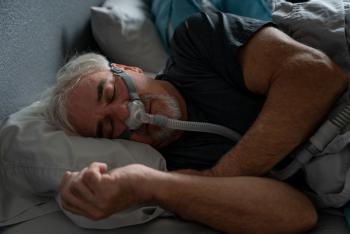Sleep apnea, a common sleep disorder characterized by interruptions in breathing during sleep...
Read More
If you have Type 2 Diabetes, snore, and feel tired after a full night’s sleep, you might have Obstructive Sleep Apnea (OSA).
OSA occurs when the muscles in the back of your throat relax. These muscles support the soft palate, the triangular piece of tissue hanging from the soft palate (uvula), the tonsils, the side walls of the throat and the tongue.
When the muscles relax, your airway narrows or closes as you breathe in. You can’t get enough air, which can lower the oxygen level in your blood. Your brain senses your inability to breathe and briefly rouses you from sleep so that you can reopen your airway. This awakening is usually so brief that you don’t remember it.
You might snort, choke or gasp. This pattern can repeat itself five to 30 times or more each hour, all night, impairing your ability to reach the deep, restful phases of sleep.
"Treating OSA in diabetics improves nighttime glucose levels and insulin sensitivity. Treatment also will provide benefits of improved sleep unrelated to diabetes, including increased alertness during the day and improved memory and cognitive function. Evidence shows that OSA treatment lowers nighttime and daytime blood pressure with the greatest improvement in patients seeking treatment for moderate to severe OSA,” said Safwan Badr, M.D. and Esra Tasali, M.D.
According to the CDC: 7/10 people with Type 2 Diabetes in the United States also have OSA
References: American Academy of Sleep Medicine (AASM) – June 2013, Press Release, “Patients with Type 2 Diabetes or Hypertension Must be evaluated for Sleep Apnea,” Esra Tasali, M.D., Associate Professor of Medicine, Director of Sleep Research, University of Chicago, Dept. of Medicine; Safwan Badr, M.D., MBA, Former AASM President, Chair at Wayne State University School of Medicine.

Sleep apnea, a common sleep disorder characterized by interruptions in breathing during sleep...
Read More
Vince Yankowski joined Inspira's Diabetes Self-Management Program and Diabetes Support Group, where...
Read More
Managing diabetes involves more than blood sugar control—it also requires diligent wound care to...
Read More